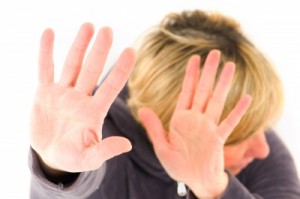
Image courtesy of Ambro at FreeDigitalPhotos.net
What is PTSD?
Post-traumatic stress disorder is an anxiety condition that develops when an individual experiences or witnesses any event that produces extreme fear; such as a murder, physical abuse or even a severe motor accident.
What are the symptoms of PTSD?
The symptoms of post-traumatic stress disorder include nightmares, flashbacks, severe anxiety, intrusive thoughts about the event, feeling detached and unable to connect with loved ones, depression, being overly aware of danger and anger outbursts.
How many people suffer from PTSD?
Simply going through a traumatic event does not mean you will develop PTSD. Currently, about 60% of men and 50% of women experience at least one traumatic event in their lifetime. A much smaller percent of individuals develop PTSD, as follows (based on US population figures):
- 7-8% of the population will develop PTSD at some point in their lives.
- About 5.2 million adults will experience PTSD each year.
Who is most likely to develop PTSD?
- History of physical or sexual abuse
- Working in a high risk situation such as a policeman, fireman or active military personnel
- History of depression or other psychological disorder
- Alcohol or drug abuse
- Non-existent or poor support system
- Women are twice as likely to develop PTSD
- Veterans
- Survivors of terrorism, car wrecks, fires or other unexpected events
What’s the long term prognosis for PTSD sufferers?
The long term prognosis for PTSD sufferers varies greatly and depends on many factors. Your ability to cope with stress, temperament, preexisting depression, support network, use of alcohol and/or drugs to cope, general stress level and the ability to remain in treatment can all affect the long term outlook.
In general, with proper treatment:
- 30% will recover completely
- 40% will get better, with only less intense symptoms remaining
What are typical treatment methods?
- Cognitive behavior therapies – Techniques are learned to help cope with thoughts and feelings of the events. Gradual exposure to events and places reminiscent of the traumatic event may be suggested to build up a tolerance and lessen fear.
- Stress management therapy – Techniques are taught to relax and overcome fear and anxiety.
- Psychotropic medications for depression and anxiety are prescribed.
- Antidepressants such as selective serotonin reuptake inhibitors (SSRIs), including sertraline (Zoloft), fluoxetine (Prozac), fluvoxamine (Luvox), or paroxetine (Paxil).
- Benzodiazepines, a group of medications sometimes used for anxiety, including lorazepam (Ativan) and alprazolam (Xanax). These drugs have sedating properties and may cause drowsiness, constipation, or nausea. Do not take them if you have narrow angle glaucoma, a psychosis, or are pregnant. They also interact with other drugs, including some antidepressants (such as Luvox).
- Dopamine-blocking agents, such as neuroleptics. There is some evidence of increased dopamine presence in children and adults with PTSD.
Can PTSD be treated naturally with homeopathy?
Homeopathy has proven to be very effective in the treatment of PTSD. Homeopathy gives doctors the ability to treat each patient’s symptoms specifically rather than prescribing a “blanket” medication that treats a range of symptoms. This approach eliminates the negative side effects of traditional psychotropic drugs and offers a more gentle and individualized treatment plan.
The following list are examples of how homeopathic treatments and herbs can treat specific symptoms and should not to be considered a treatment plan. If you, or someone you know, suffers from PTSD it’s best to consult with a homeopathic doctor for individualized treatment. There are many factors when determining exactly which treatment is prescribed.
- Stramonium is effective for nightmares and night terrors.
- Gelsemium eases the fear that something bad will happen in the future.
- Aconitum eases reoccurring panic after the event.
- Amica for chronic conditions such as depression.
- Hops can ease anxiety and stress.
- Green tea boosts the immune system and can assist PTSD suffers to resist illnesses.
- Valerian promotes calmness and relaxation.
As mentioned earlier, the list above is a very limited list of possible treatments. A specific treatment plan should be developed by a trained homeopathic doctor based on the patient’s symptoms, severity of those symptoms and medical history.
Disclaimer: No statements on this website are intended to diagnose, prevent, treat or cure any condition or disease but rather are given for informational purposes only. Always seek the advice of a licensed, trained health care provider when using any dietary supplements, herbal, homeopathic, over-the-counter medicines, prescription drugs or making any dietary or lifestyle changes.

